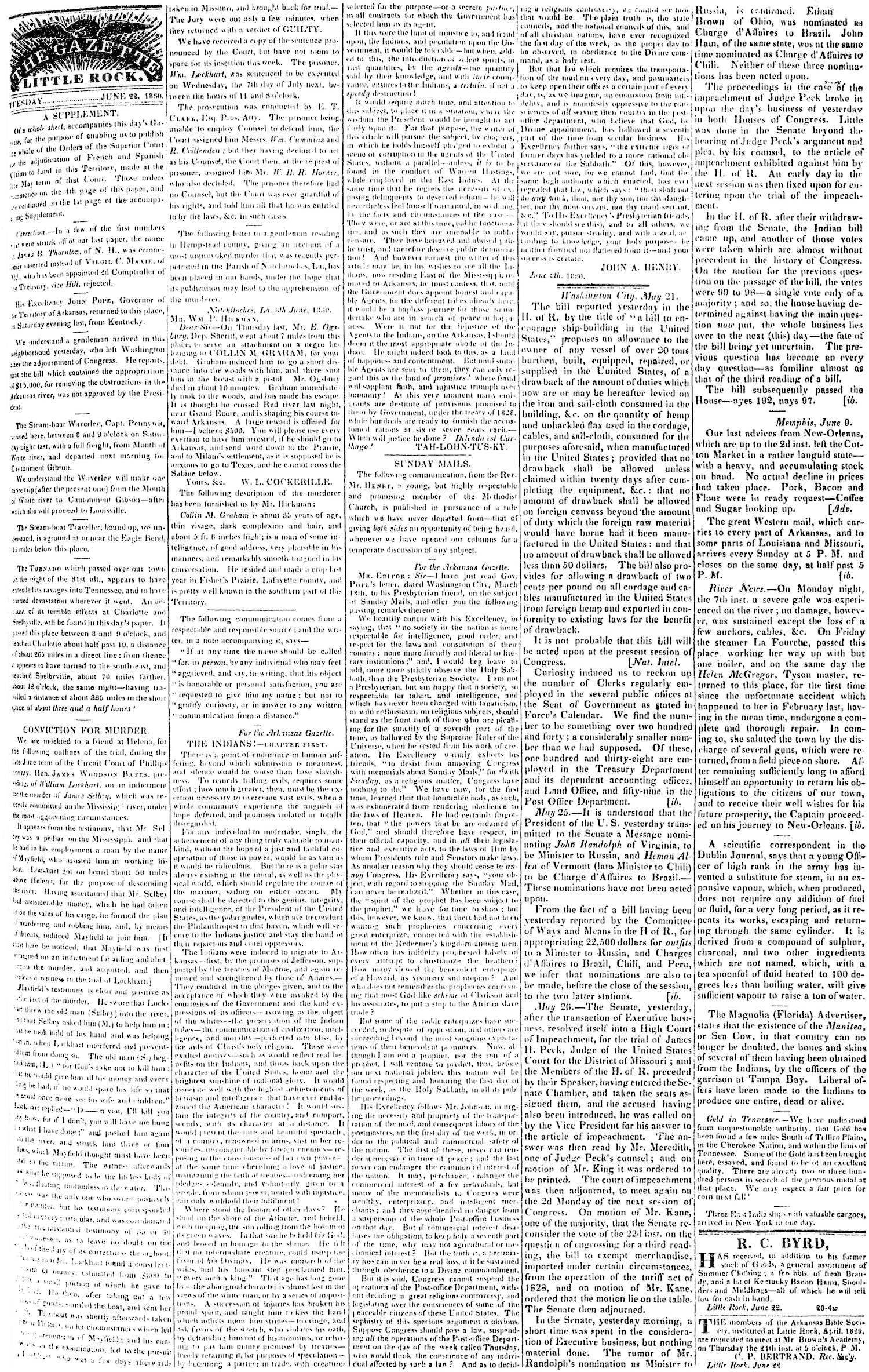
« 1830 »
On June 22, 1830, The Arkansas Gazette published the first of five letters written by the future governor of Texas Sam Houston under the pseudonyms Tah-lohn-tus-ky and Standing Bear.
Houston had been living as an adopted member of the Cherokee along the Arkansas River for a year. His letters describe appalling conditions among the tribes in Indian Territory. He rails against public agents who profit off the food they are supposed to provide to starving the people and charges that they deliberately try to destroy the people’s character by selling them alcohol.
“They have betrayed and abused public trust,” he writes, “and therefore deserve public denunciation!”
As a child in Tennessee, Houston had run away from his unhappy home to live with the Cherokee and was adopted by a chief named Oolooteka, who named him “Raven” in the Cherokee language.
A chronology from the Sam Houston Memorial Museum in Huntsville, Texas, shows Houston’s youthful careers included an attempt at school founding, military service, acting as an Indian agent and reading the law. By 1829 he’d served two terms in Congress and become governor of Tennessee.
He married in January 1829, but the marriage disintegrated. His wife left him in April; he resigned as governor, and he sought solace with his adoptive father, Oolooteka. The Encyclopedia of Arkansas History and Culture (see arkansasonline.com/516houston) writes that one of the names the Cherokee gave him translates as “Big Drunk.”
The Cherokee had been moved to Indian Territory, where they were starving. After a bout with malaria and despair, Houston roused from what historian Margaret Ross terms his “besotted lethargy” and became a legal Cherokee citizen; his letter of admission was issued at Tahlontuskee, Indian Territory.
His letters to the Gazette decry the parade of broken contracts and false deals that led to the Indians’ removal from their historic lands. That could be borne, he writes, but what is currently happening cannot: “There is a point in human suffering beyond which submission is meanness, and silence would be worse than base slavishness,” he writes.
— Celia Storey
You can download a PDF by clicking the image, or by clicking here.
